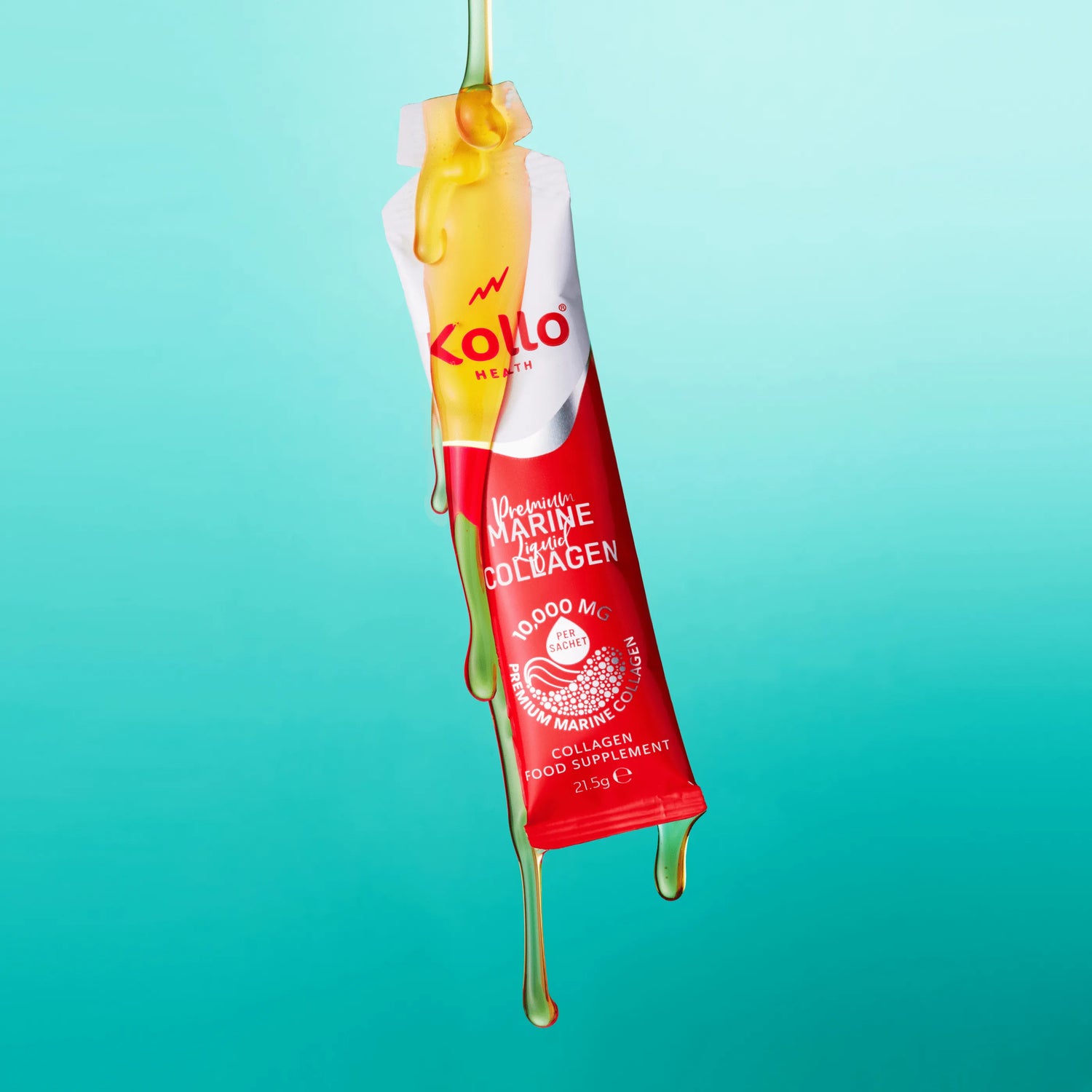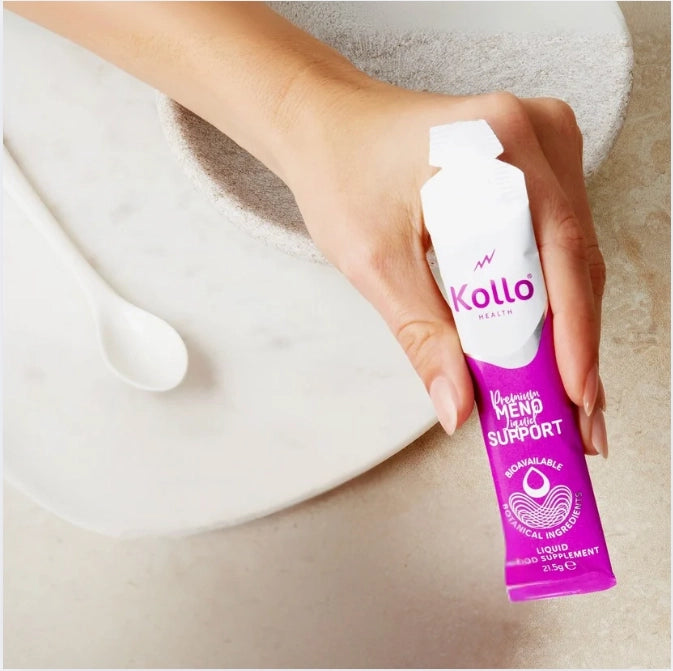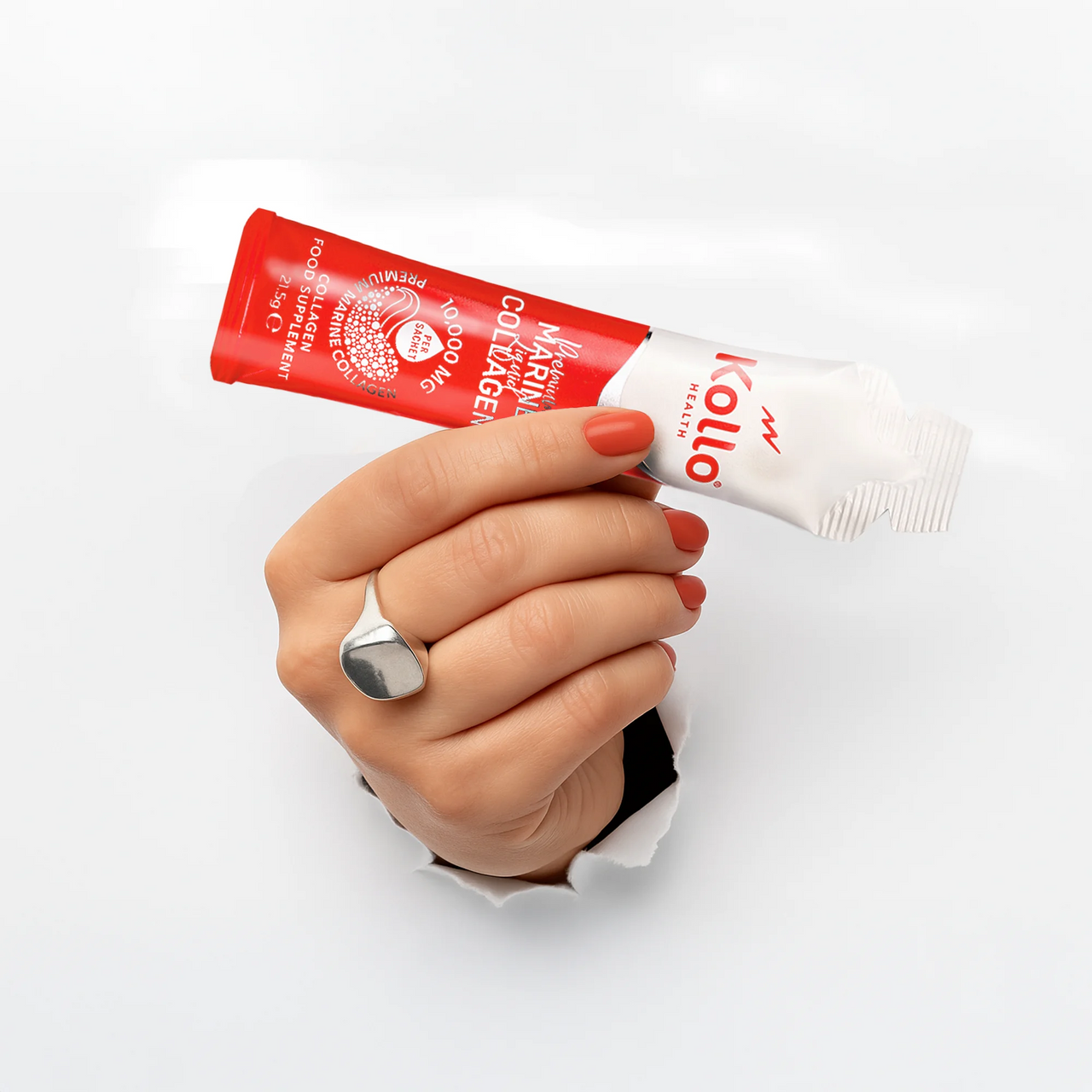Are all collagen peptides marine-sourced?
Every sachet of Kollo contains a potent 10 grams of marine collagen peptides. The aim is to fuel your body with the nutrients it needs to synthesise its own collagen. These collagen peptides are amino acid chains derived from native collagen molecules. As such, they contain everything your body needs to create that all-important protein itself. But are all collagen peptides marine-sourced or are there other ways to obtain it?
Read on to find out the answer to this question and what it means.
What are marine collagen peptides?
As you might guess, the use of the word ‘marine’ refers to the fact that the collagen originates from sea creatures. Specifically, it is fish that we source our collagen from: tilapia, pangasius hypophthalmus and catfish, to be precise.
These are good sources of potent collagen and the fish used in our collagen come from an aquaculture fish farm. The responsibility and sustainability of these farms are well known. What this means is that the farming processes used to rear these fish have minimal impact on the environment. They do not use harmful chemicals like hormones and antibiotics that could contaminate the collagen.
The good stuff
Marine collagen comes from the skin and scales of the fish – we don't usually use these parts as food. It comes as a by-product of the fishing industry. In other words, no fish die specifically for obtaining their collagen. Extraction of the collagen molecules in Kollo happens via enzymatic processes, breaking down everything else to access the collagen. Some companies use chemicals to extract, but this can also result in contamination so we avoid it.
Once extraction of the native collagen molecules occurs, we break them down. This results in smaller amino acid chains called collagen peptides. The original collagen molecules are too large for our bodies to absorb. We need the smaller molecules in order for our bodies to ingest them into our bloodstream.
Increasing the presence of these amino acids triggers collagen synthesis in our bodies. Thus, it is essential that the molecules can efficiently enter the bloodstream. Marine collagen peptides are bioavailable, so you can be confident that they will get into your bloodstream fast.
So are all collagen peptides marine-sourced?
In a word: no. There are other sources of collagen from which collagen peptides originate. Common sources include:
-
Cows (bovine collagen)
-
Pigs (porcine collagen)
-
Chickens
With these animals, the collagen is often extracted from their hides, bones, cartilage and other specific body parts. Again, it is almost exclusively a by-product of the farming industry. This means that farming and slaughtering of animals rarely happens just for their collagen.
There are various reasons why brands source collagen from different animals:
Collagen type
There are many different types of collagen, all of which serve slightly different purposes in our bodies. For example, type I collagen is abundant in our skin, bones, tendons, ligaments and cartilage. Type II collagen, meanwhile, is present more specifically in the tissues of our joints. Different animals are better sources of different types of collagen. This is often because of the abundance of that collagen type in certain body parts. For instance, the volume of bone mass is far greater in cows than fish, so collagen that originates from bone may be best sourced from there.
The collagen that is by far the most abundant in our bodies is type I, and this is what we get when we use marine collagen. It is the most effective at yielding holistic benefits in our skin, joints, bones, nails and more. This is one of the reasons Kollo uses collagen peptides, marine-sourced rather than a different type.
Cost
One factor brands consider to compete with one another is keeping costs down. In many cases, collagen extracted using chemical processes from cow hides is a relatively cheap source of collagen. This is because the raw material is abundant and the extraction methods are low-cost. Companies can pass the savings made in sourcing the collagen on to the consumer. The results is a cheap collagen supplement that contains actual collagen peptides.
The problem with this is that we should never compromise on quality when it comes to food supplements. The cows that this cheap bovine collagen comes from may have endured unethical farming practices. In other words, the practice is not sustainable. Moreover, the collagen could contain various unsavoury chemicals and even toxins.
In fact, the chemical extraction process could add yet more toxins into the mix. These could actually be harmful for your body, and the impurity of the collagen may make it far less effective at yielding the results you want.
Though a cut-price collagen product may seem appealing, the reality is that you get what you pay for. And when you pay for the cheapest products, you could actually be doing more harm than good. When developing Kollo, we made careful choices about the formulation. Our goal was that the finished product included the high-quality, pure, sustainable collagen peptides marine animals can provide. Every decision followed the science and the principle of offering the best possible product for our customers.
Collagen peptides: marine considerations
Not all marine collagen is the same. There are brands that do not choose sustainable and ethical sources. Instead, they opt for fish farmed in ways that are harmful to habitats and cruel to fish. Not to mention that they use fish food that contains many of the same contaminants used in the farming of cows, pigs and chickens.
At Kollo, we use Naticol marine collagen, which is carefully extracted to preserve the purity and integrity of the collagen. It comes from aquaculture-farmed fish and all processes have been validated and confirmed as safe. They never use radiation and they implement careful techniques for sterilisation, pasteurisation, filtration and demineralisation.
The supply chain is secure and traceable, so you can put your faith in it (as we have). When looking at marine collagen supplements, look for brands that are very transparent about the source of their collagen. Brands should offer that information freely. They should also supply links to scientific studies alongside information about the entire collagen industry. These are the brands that have your best interests at heart.
Choose quality
When they tick the right boxes, collagen peptides - marine-sourced with high purity - offer fantastic benefits for your body. If supplied in a good dosage in a supplement that is easy for your body to absorb, that abundance of type I collagen can help:
-
Improve skin firmness and elasticity
-
Reduce the appearance of wrinkles and fine lines
-
Make joints more supple and comfortable
-
Increase your bone density
-
Make hair and nails stronger and less brittle
-
Improve sleep quality and help energy levels
These are just some of the benefits of marine collagen. That is not to say that bovine or porcine collagen offer no benefits. But we feel that high-quality marine collagen is the best. In fact, studies have shown it to be up to 1.5x more bioavailable than other collagen sources. This means your body can absorb it faster and in greater quantities.
PLEASE NOTE: Another advantage of marine collagen is that it is suitable for pescatarians. BUT you should be aware that people who suffer from seafood allergies should avoid marine collagen.
Final thoughts
Clearly, the answer to the question “Are all collagen peptides marine-sourced?” is a resounding “No”. But our extensive research into the industry led us to conclude that the all-round best collagen peptides are the marine variety. This is what we put into every daily sachet of our Kollo collagen supplement.
If you want to learn more about our product, we invite you to explore our website. The product page lists details about the supplement, and we also have a page about scientific studies. There is an extensive blog that discusses everything you need to know, and a page of customer reviews for more evidence of what Kollo does for people.
If you still have questions, please don’t hesitate to get in touch and ask us – our team would love to hear from you.







